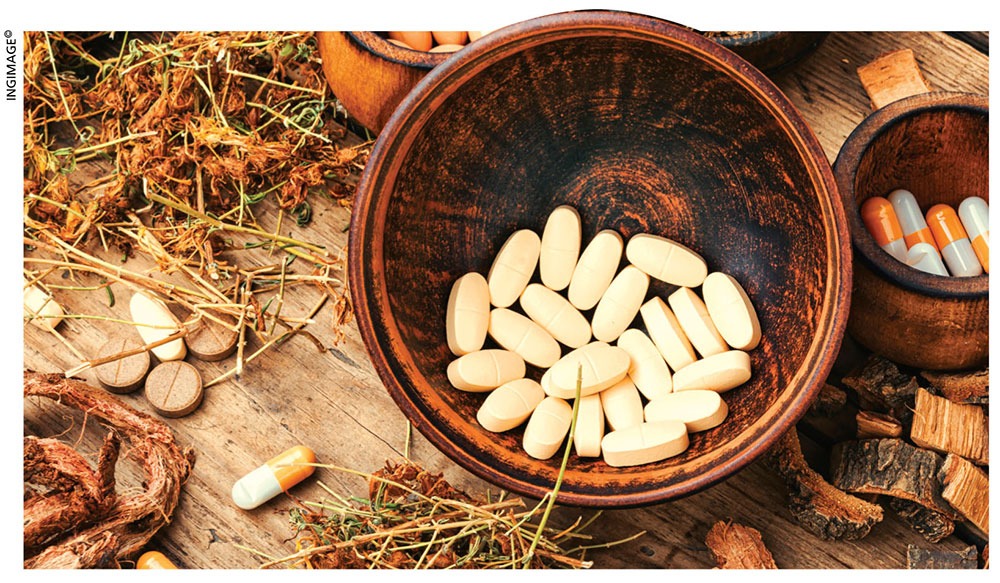HEALTHCARE SECTOR
Reverse pharmacology is the process of drug discovery that begins with traditional medicine, and works backwards in search of active compounds and understanding their mechanism of action.
The attention of academicians in the late 20th century was raised in the direction of reverse pharmacology as their pharmaceutical collaborations explored novel methods for discovering medication.
REVERSE PHARMACOLOGY HEALS
Janaka Perera notes how the process of discovering medicines has changed

It’s a drug discovery approach that shifts from the traditional lab, to clinic model a clinic to lab or bench to bedside framework. Starting with traditional knowledge, regular medicine or documented clinical observations, reverse pharmacology uses this information to identify potential drug targets, and leads through experimental and clinical studies.
This process aims to uncover new therapeutic uses for drugs, repurpose existing medications and develop natural product based therapies by integrating traditional knowledge with modern science.
The credit for stimulating the interest of Indian chemists and pharmacologists in medicinal plants goes to Sir Ram Nath Chopra, who was acclaimed as the ‘father of Indian pharmacology.’
Here in Sri Lanka, reverse pharmacology involves using ancient Ayurvedic and Dēshiya Chikitsa (indigenous medicine) traditions as a starting point for modern drug discovery. This approach leverages documented clinical evidence and the long history of traditional remedies, to identify and validate drug leads more efficiently.
This happens by integrating traditional knowledge with modern technology to find better and safer drug candidates for various diseases. It integrates traditional medicine systems such as Ayurveda with modern scientific methodologies.
Unlike conventional pharmacology, which begins with a specific target in a lab, reverse pharmacology begins with well documented observations of a drug’s efficacy or traditional remedy’s effects in real world clinical use.
Sri Lanka boasts a long history of traditional medicine, which uses a large number of local plant and herbal preparations. Reverse pharmacology provides a framework to scientifically reevaluate these traditional remedies.
The University of Colombo is actively engaged in this area and developing herbal formulae that combine ancient wisdom with modern science to target specific conditions such as the work on nutraceuticals for cancer stem cells.
This approach has the potential to drive economic growth and position our country as a leader in natural product based drug discovery.
Reverse pharmacology uses this knowledge to identify lead compounds from the traditional preparations and develop them into drug candidates for further testing. Four systems of traditional medicines have been adopted here – viz. Ayurveda, Siddha, Unani and Dēshiya Chikitsa.
The origins of Ayurvedic medicine can be traced back over 5,000 years to the Indian subcontinent. Sri Lanka shares a close historical and cultural relationship with India, and it’s believed that Ayurveda was introduced to the island by Indian settlers and traders.
Some early inhabitants of Sri Lanka embraced Ayurvedic principles and blended these with indigenous healing practices. This fusion created a unique version of Ayurvedic tradition that was influenced by various cultures and traditions over the centuries.
Clinical experiences and observations on available data have become the starting point for drug development from Ayurvedic sources in contrast to conventional drug development. Randomised controlled clinical trials for Parkinson’s disease and many other disorders have reasonably established the clinical efficacy of a series of Ayurvedic drugs.
Western science only recently discovered that the gut is the foundation of health whereas Ayurveda has known this for over 5,000 years.
The concept of agni (digestive fire) is central to Ayurvedic medicine – your gut is the key to immunity, mood and overall wellbeing. Triphala (fermented foods and fasting, which are staples of Ayurveda) is now being marketed as a groundbreaking wellness trend.
Historic examples are manifold and include morphine, which was isolated from poppy plants – specifically from opium. Traditional Chinese Medicine (TCM) is known to play an important anticancer role since its components have low toxicity, high efficacy and safety, and can reverse multi-drug resistance.
Sri Lankan practitioners of Ayurveda also use cannabis or hashish in very limited quantities in the preparation of their medicines since it’s risky to use it freely, and it’s has been banned for recreational use.
At the end of his course of studying Ayurveda, ancient Indian physician Jīvaka asked his master for more guidance. He was instructed to venture into the jungle and find any plant that couldn’t be used as medicine.
After a few days Jīvaka returned and informed his guru that there wasn’t a single such plant. His wise teacher then informed the student that he had mastered Ayurveda.





